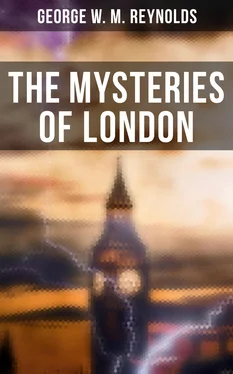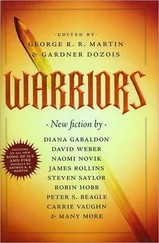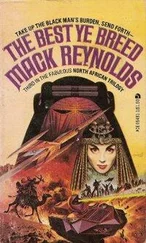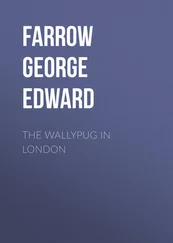"You may stand down, sir," said the counsel for the defence—a permission of which the witness availed himself with surprising alacrity.
The counsel for the prosecution now called Mr. Whittingham. The poor butler ascended the witness-box with a rueful countenance; and, after an immense amount of badgering and baiting, admitted that his young master had meditated a sudden and abrupt departure from England, the very day upon which he was arrested. In his cross-examination he declared that the motives of the journey were founded upon certain regrets which Richard entertained at having permitted himself to be led away by Messrs. Chichester and Talbot, and Sir Rupert Harborough.
"And, my Lords," ejaculated the old domestic, elevating his voice, "Master Richard is no more guilty of this here circumwention than either one of your Lordships; but the man that did it all is that there Chichester, which bilked his wally-de-shamble, and that wulgar fellow, Talbot, which called me a tulip ."
This piece of eloquence was delivered with much feeling; and the Judges smiled—for, they appreciated the motives of the honest old domestic.
The officer who arrested Markham, proved that he found upon his person, when he searched him at Bow Street, a pocket-book, containing between thirty and forty pounds, in notes and gold, together with a note for fifty pounds.
A clerk from the Bank of England proved that both the note for five hundred pounds changed at the bankers, and the one for fifty just alluded to, were forgeries.
The case for the prosecution here closed; and the Judges retired to partake of some refreshment.
Markham had leisure to think over the proceedings of the morning. He was literally astounded when he contemplated the diabolical perjury committed by Sir Rupert Harborough and Mr. Chichester; but he entertained the most sanguine hope that the discredit thrown upon the character of the latter would render his testimony worthless. He shuddered when he reflected how ingeniously the counsel for the prosecution had grouped together those circumstances which told against him; and then again a ray of satisfaction animated his countenance, when he remembered that his counsel would speedily show those circumstances in a new light.
The Judges returned: silence prevailed throughout the hall; and the prisoner's counsel rose for the defence. Richard seated himself in the dock, and prepared to listen with the greatest attention to the speech of his advocate; and Whittingham placed his hand in a curved position behind his ear, in order to assist that organ on the present important occasion.
The counsel for the defence began by giving some account of the family and social position of the prisoner, who was born of parents accustomed to move in the first rank of life, and who was the heir to a fortune of no inconsiderable amount. During his minority, his guardian, who was then present, had promised to allow the prisoner six hundred pounds a-year. With these pecuniary advantages, it was absurd to suppose that a young man of education—a young man whose noble and honourable feelings had been the object of remark on the part of all his friends, and who had only to express a want to his guardian, in order to receive its immediate gratification—it was absurd to imagine that such an individual would either enter into a conspiracy with others, or plan by himself, for the purpose of raising money upon forged notes. No—this young man was one of a most generous and confiding disposition; and, as he had seen but little of the world, he was totally unacquainted with its wiles and artifices. Thus was he made the dupe of some designing villains, at his very outset upon life. The whole history of the present transaction was to be summed up in a few words. A gang of conspirators had hit upon the desperate mode of passing forged notes, in order to retrieve their ruined fortunes. Not as magnanimous as the highwayman who perils his own existence while he perpetrates a crime, these men required a tool of whom they might make use, and who could be at any time sacrificed to save them. This instrument—this scapegoat, was the prisoner at the bar. The witness, whose real name was Chichester, but who, by his own confession, had travelled on the Continent under another denomination, was not a person on whom the Jury could place any reliance. He had assumed a distinction to which he was by no means entitled—he had affected all the arrogance and importance of a man of rank and fashion—whereas he was the son of a pawnbroker in the refined locality of Brick-Lane, Bethnal Green! Endowed with much impudence, clever in imitating the manners of his superiors, and well versed in all the intricacies and subtleties of the world, this possessor of assumed distinctions—this swaggering imitator of a class far above him—this adventurer, with fascinating conversation, ready wit, amusing anecdote, and fashionable attire—this roué of the present day, with jewellery about his person, and gold in his pocket—allowing ever an engaging smile to play upon his lips, and professing unmitigated disgust at the slightest appearance of vulgarity in another—this individual—this Mr. Chichester was the principal witness whom the counsel for the prosecution had brought forward. But no English Jury would condemn a fellow creature upon such testimony—the testimony of one who was compelled to fly ignominiously and precipitately from Baden, on account of some rascality at cards, and who left his domestic in a strange land, pennyless, ignorant of the language, and surrounded by the odium which also attached itself to the name of his master. The prisoner had no motive in passing forged notes, because he was wealthy;—but Mr. Chichester had a motive, because he evidently lived far beyond the means which his father could allow him.
The learned counsel here related the manner in which Richard had been induced to change the larger note, and had become possessed of the smaller.
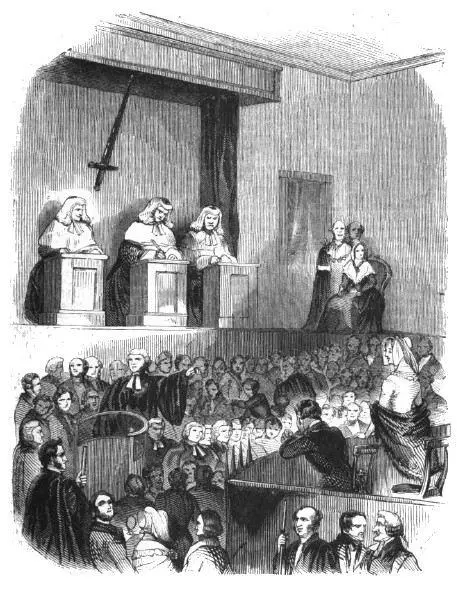
He then proceeded to observe, that the letters addressed to Mrs. Arlington and Mr. Monroe related to the fact that the prisoner's eyes had been suddenly opened to the characters of his associates, and to the career of dissipation in which they were leading him. The phrase upon which so much stress had been laid—" till at length yesterday ——" alluded to the suicide of a young officer, which had taken place while the prisoner was at the gambling-house, whither he had been inveigled instead of inveigling others. " He could not have remained in London another minute with safety to himself. " And why? because these associates whom he had accidently picked up, would not leave him quiet. They regularly beset him. " He was penitent ;" and he hoped that Mr. Monroe would " defend and protect his reputation ." Yes—when the newspaper reports conveyed to the knowledge of that gentleman the fact that his ward had been arrested in a common gambling-house, and fined for being there. The letters were written hurriedly, and were ambiguous: thus they were susceptible of more than one interpretation. Let the jury interpret them in favour of the prisoner. It was better to send a dozen guilty men back again into society, terrible as that evil would be, than to condemn one innocent person. Then, with regard to the precipitate departure: the witness Whittingham had shown, in his cross-examination, that the prisoner's object was to escape from the three men whose characters were suddenly unveiled to him. It was said, that the prisoner had requested those three individuals to accompany him to the gaming-house, and that they at first refused. Oh! amazing fastidiousness—especially on the part of Chichester, who had been compelled to decamp from Baden, for cheating at cards! Then it was stated that the prisoner asked for change for a fifty-pound note; and it was said, that he would have availed himself of that accommodation to pass a forged note. Why—he (the learned counsel) had already explained how that fifty-pound note came into the prisoner's possession—his own gold having been transferred by Mr. Chichester to Sir Rupert Harborough's writing-desk! The learned counsel concluded, by asking how it happened that no other forged Bank of England notes—no copper-plates to print them with—no materials for such a fraud, were found at the prisoner's house? Could it be supposed that a young man with his prospects would risk his reputation and his safety for a few hundreds of pounds? The idea was preposterous. The prisoner's counsel entered into a few minute points of the evidence which told in favour of his client, and wound up with a powerful appeal to the jury in his behalf.
Читать дальше
